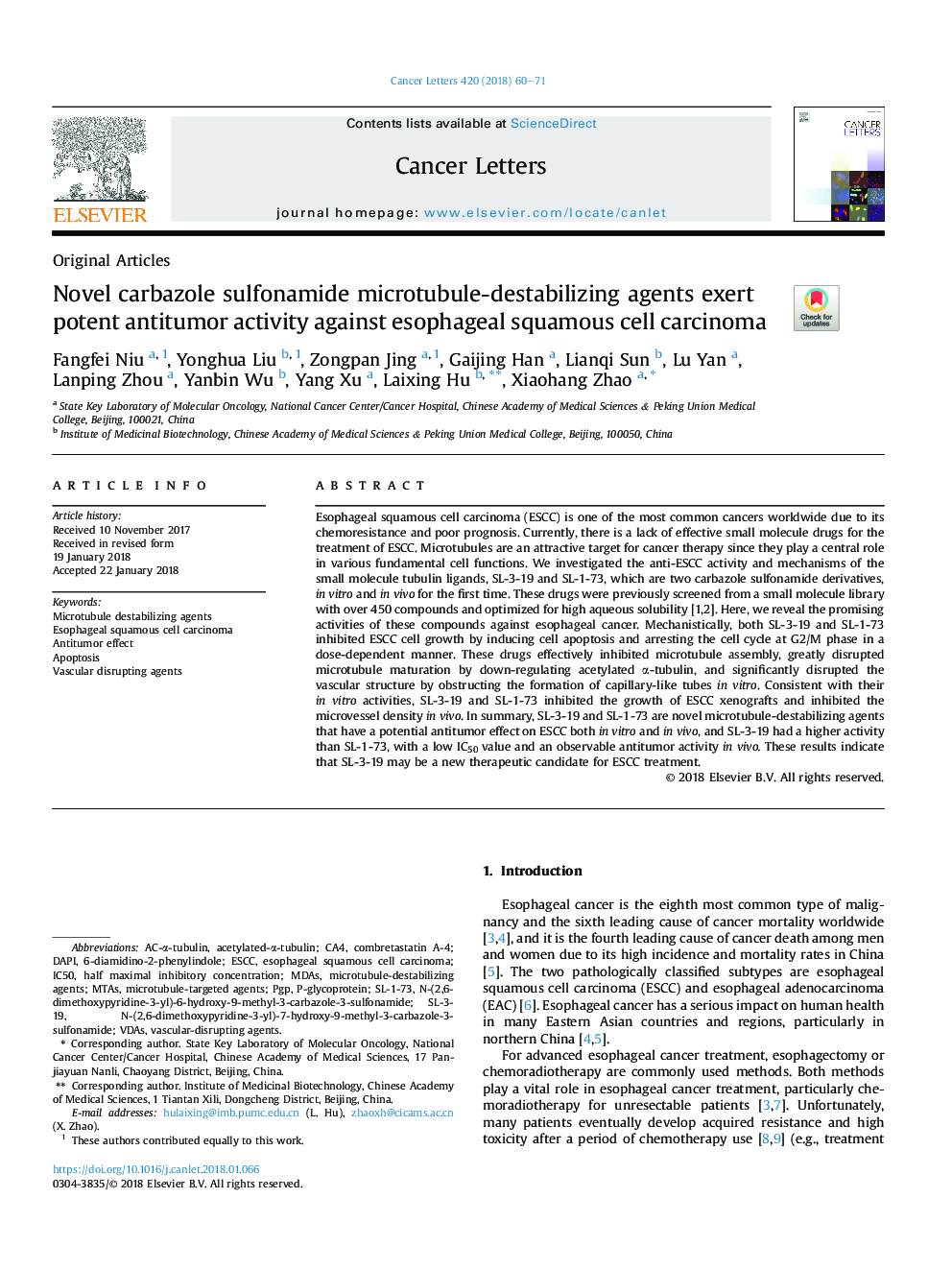| Article ID | Journal | Published Year | Pages | File Type |
|---|---|---|---|---|
| 8434643 | Cancer Letters | 2018 | 12 Pages |
Abstract
Esophageal squamous cell carcinoma (ESCC) is one of the most common cancers worldwide due to its chemoresistance and poor prognosis. Currently, there is a lack of effective small molecule drugs for the treatment of ESCC. Microtubules are an attractive target for cancer therapy since they play a central role in various fundamental cell functions. We investigated the anti-ESCC activity and mechanisms of the small molecule tubulin ligands, SL-3-19 and SL-1-73, which are two carbazole sulfonamide derivatives, in vitro and in vivo for the first time. These drugs were previously screened from a small molecule library with over 450 compounds and optimized for high aqueous solubility [1,2]. Here, we reveal the promising activities of these compounds against esophageal cancer. Mechanistically, both SL-3-19 and SL-1-73 inhibited ESCC cell growth by inducing cell apoptosis and arresting the cell cycle at G2/M phase in a dose-dependent manner. These drugs effectively inhibited microtubule assembly, greatly disrupted microtubule maturation by down-regulating acetylated α-tubulin, and significantly disrupted the vascular structure by obstructing the formation of capillary-like tubes in vitro. Consistent with their in vitro activities, SL-3-19 and SL-1-73 inhibited the growth of ESCC xenografts and inhibited the microvessel density in vivo. In summary, SL-3-19 and SL-1-73 are novel microtubule-destabilizing agents that have a potential antitumor effect on ESCC both in vitro and in vivo, and SL-3-19 had a higher activity than SL-1-73, with a low IC50 value and an observable antitumor activity in vivo. These results indicate that SL-3-19 may be a new therapeutic candidate for ESCC treatment.
Keywords
Related Topics
Life Sciences
Biochemistry, Genetics and Molecular Biology
Cancer Research
Authors
Fangfei Niu, Yonghua Liu, Zongpan Jing, Gaijing Han, Lianqi Sun, Lu Yan, Lanping Zhou, Yanbin Wu, Yang Xu, Laixing Hu, Xiaohang Zhao,
